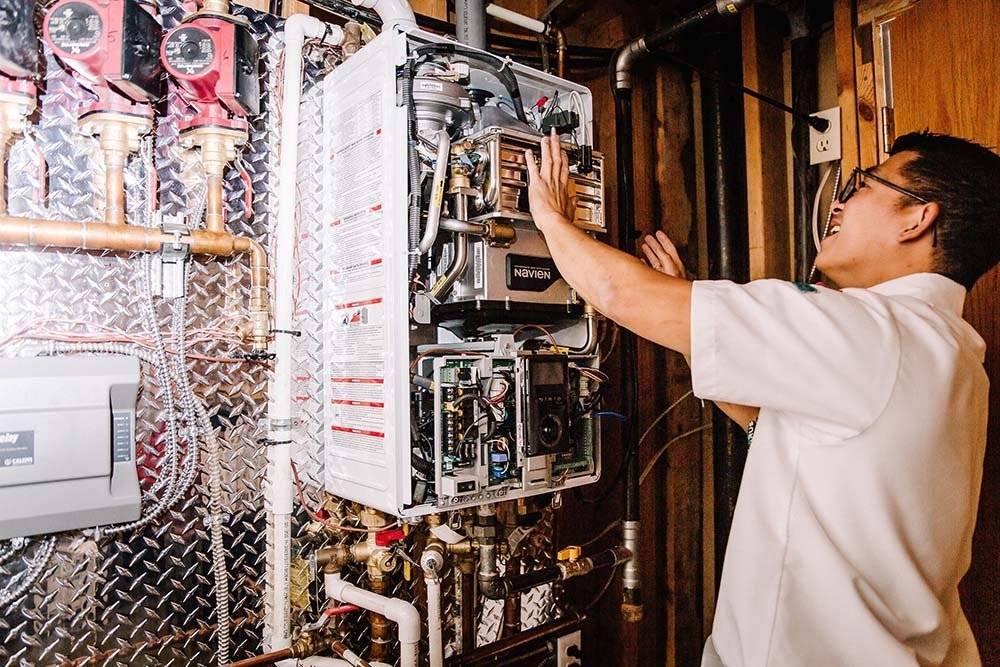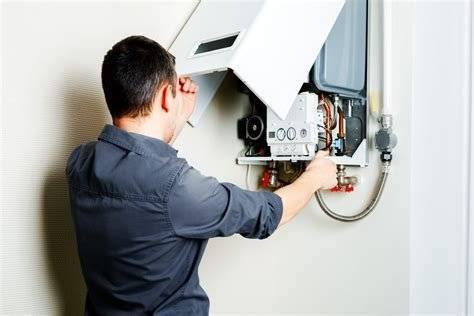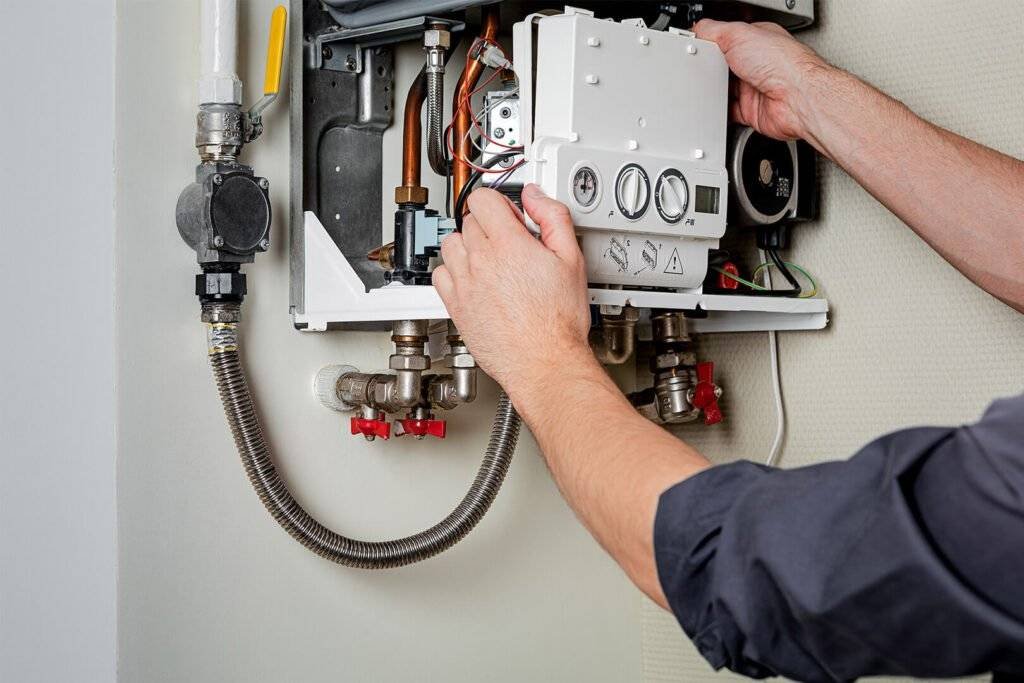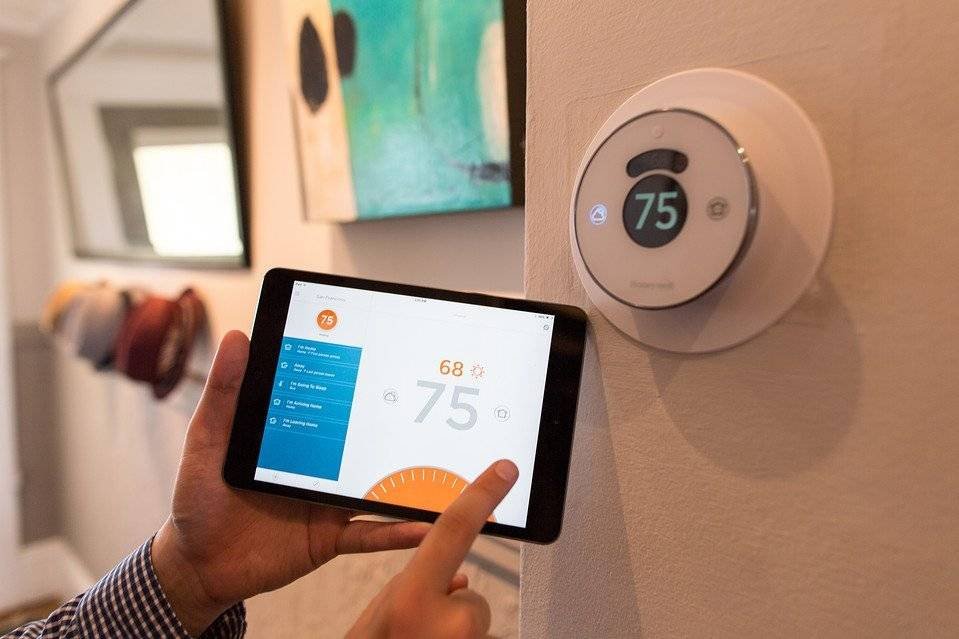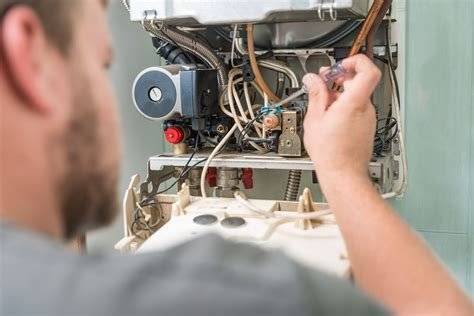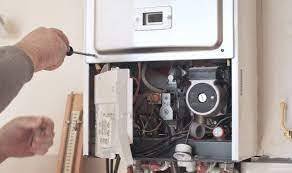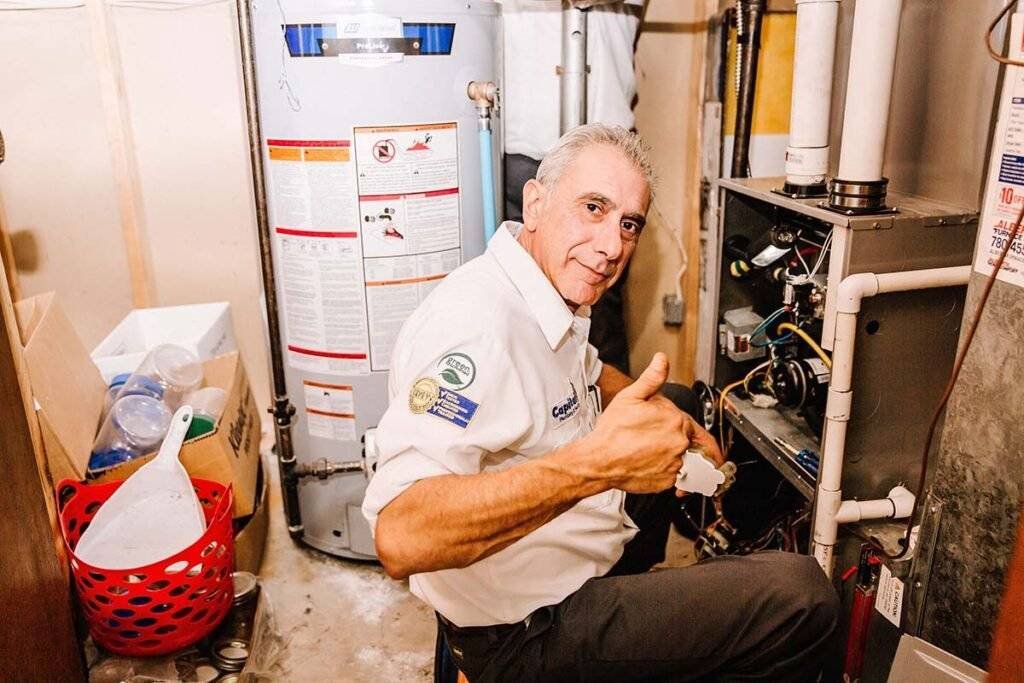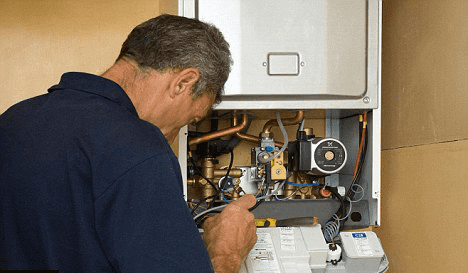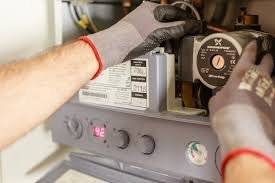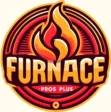Furnace Installation Onoway - Your Trusted Heating Experts
Furnace Pros Plus is your reliable partner for all your heating requires. With years of experience, we focus on providing top-notch heating solutions to keep your home warm and comfy. Our group of proficient technicians commit themselves to offering specialist heating system installation, upkeep, and repair services. We comprehend the significance of a properly functioning heater, particularly during the chillier months. We focus on efficiency, price, and consumer satisfaction in every task (huge or little). Whether you need a brand-new heating system, a regular check-up, or emergency repairs, count on Furnace Pros Plus for reliable and effective heating services that guarantee comfort and convenience.
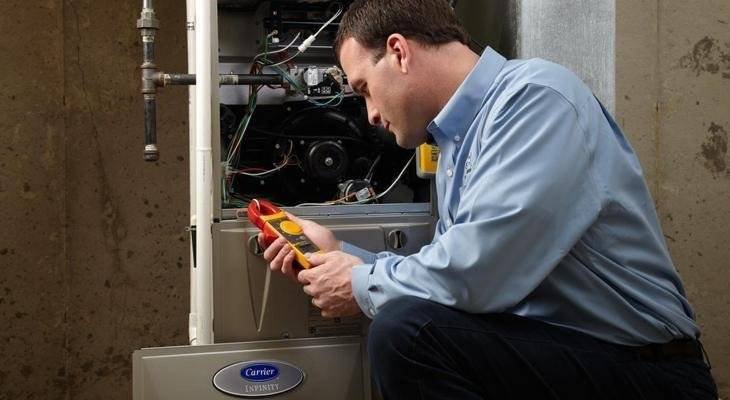
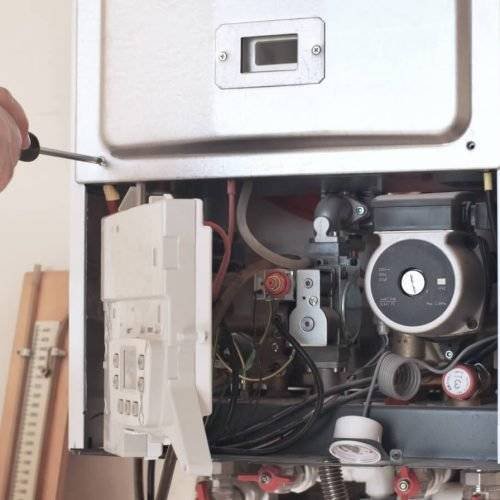
Who Are We?
Domestic Heating Replacements and Repairs
Furnace Pros Plus stands apart as the leading heating system installation and repair contractor in Onoway, Alberta, thanks to its unmatched dedication to quality, customer care, and proficiency. With years of experience in the heating and cooling industry, Furnace Pros Plus has earned a reputation for providing reliable and effective services tailored to the special climate and requirements of Onoway residents.
The business’s commitment to quality begins with its group of certified professionals. Each furnace specialist is not only extremely skilled and well-informed about the latest heating system innovations but likewise devoted to ongoing training and advancement. This guarantees that every installation or repair is performed with the utmost precision and current strategies, guaranteeing exceptional performance and durability of your heater.
Furnace Pros Plus comprehends the significance of a well-functioning heating system, particularly during the harsh Onoway winter seasons. That’s why they offer a rapid response to guarantee that any heating system emergency is handled promptly and efficiently, decreasing discomfort and prospective threats. Their 24/7 availability is a testament to their dedication to consumer satisfaction and safety.
Moreover, Furnace Pros Plus makes use of only the highest quality products and materials in all their setups and repairs. By partnering with leading makers, they guarantee that every part of your furnace system is durable and effective, offering optimum heating and reducing energy expenses. This commitment to quality, extends the life of the heating system, offering more value for the investment.
In addition to their technical proficiency, Furnace Pros Plus excels in customer care. They focus on clear interaction, offering detailed consultations and transparent prices without hidden costs. Their individualized technique means that every service is tailored to the particular requirements and budget plan of their clients, guaranteeing that you feel valued and satisfied with every interaction.
For these reasons and more, Furnace Pros Plus is the top option for anyone requiring heating system installation and repair services in Onoway, showing an unequalled mix of quality, proficiency, and customer-focused service.
How can we help you?
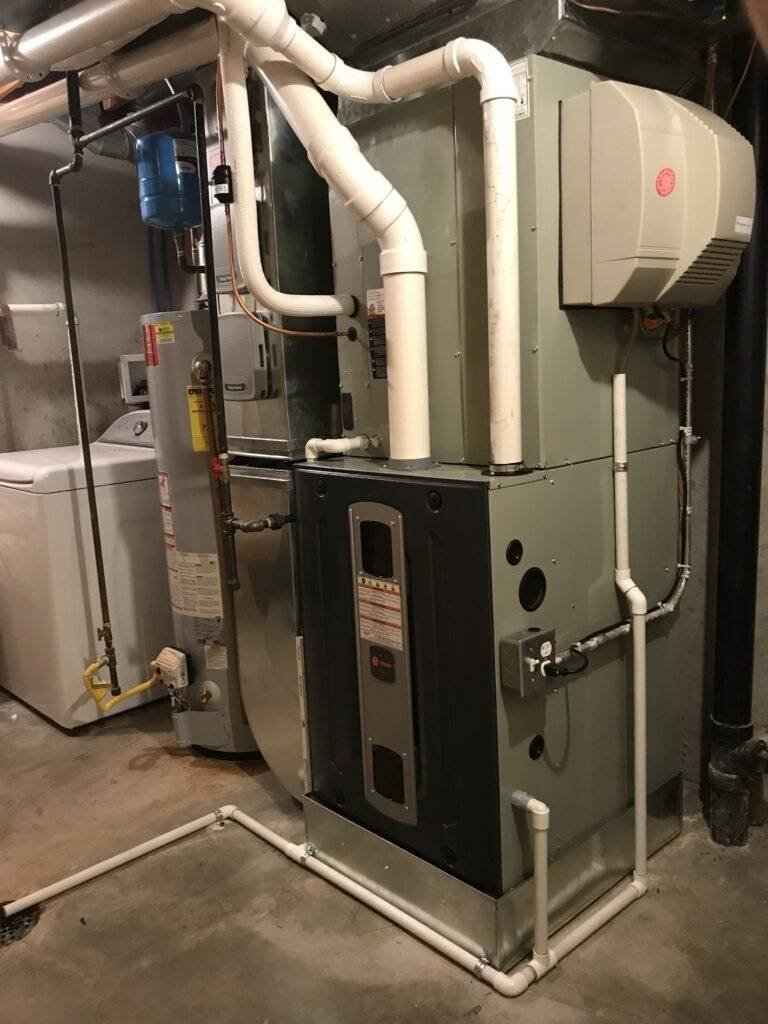
Understanding the Expense of Installing a New Furnace
Introduction
A working heating system is essential when it concerns maintaining a comfy and warm home during the chillier months. Nevertheless, there comes a time when setting up a brand-new heating system is inescapable.
Understanding the expenses associated with this procedure is important for property owners to strategy and budget plan appropriately. This detailed guide explores the different factors affecting the expense of setting up a brand-new heating system.
Elements Influencing Furnace Installation Expenses
Type of Furnace:
- Gas Heating Systems: Popular for their efficiency, they generally cost more upfront but offer lower operating costs.
- Electric Furnaces: They are less expensive than gas furnaces. Nevertheless, electrical designs tend to have greater operational expenses due to electrical energy prices.
- Oil Heating systems: These are less typical and can be more expensive due to the expense of oil.
Furnace Size and Capability
- Square Footage: The size of your home directly affects the capability required for the heating system.
- BTU Score: Greater BTU rankings equate to more powerful furnaces, which can increase the expense.
Effectiveness Scores
Yearly Fuel Usage Effectiveness (AFUE):
Greater AFUE rankings indicate much better efficiency but likewise come with a higher cost.
Brand name and Quality
Top-tier brand names frequently command greater prices due to their track record for quality and durability.
Installation Intricacy
- Existing System: Updating from an old system might need additional work and expense.
- Ductwork: The condition and layout of existing ductwork can impact installation intricacy.
- Availability: Difficult access to the installation site can increase labour expenses.
Labour Expenses
Labour expenses differ by region. In addition, the intricacy of the installation can influence labour expenses.
Extra Expenses to Think About
- Permits: Some localities need authorizations for heating system installation.
- Inspections: City bylaws might need post-installation inspections for safety compliance.
- Thermostats: Updating to a wise thermostat can sustain additional expenses.
Typical Expense of Furnace Installation
While prices can differ extensively based upon the factors discussed above, here are some average expense ranges for heating system installation:
- Gas Heating systems: $2,000 to $5,000.
- Electric Furnaces: $1,000 to $2,500.
- Oil Heating systems: $2,500 to $6,000.
These are rough price quotes and can differ based upon particular home requirements.
Cost-Saving Tips.
Research study and Compare.
Get numerous quotes from various specialists to guarantee competitive prices.
Look For Refunds and Incentives.
Look for energy efficiency refunds used by utility business or government programs.
Think About Long-Term Savings.
Purchasing a more effective heating system can lower energy bills gradually.
Conclusion
Installing a brand-new heating system is a substantial investment, and understanding the expenses included is essential for any house owner. By considering the type of heating system, installation intricacy, labour expenses, and additional costs, property owners can much better get ready for this necessary upgrade. Remember to look for numerous quotes, check out offered refunds, and think about long-lasting energy savings when choosing.
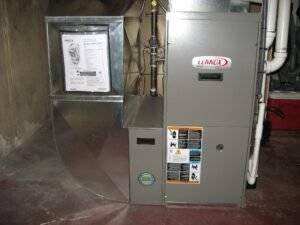
The Right Dimension Furnace for Your Home: A Comprehensive Guide
Introduction
Selecting the ideal size heating system for your home is important for guaranteeing effective heating and convenience during the chillier months. A heating system that’s too little won’t keep your home warm, while one that’s too large can cause unnecessary energy usage and unequal heating. This guide will help you determine the perfect heating system size for your home.
Understanding Furnace Sizing: BTU and Effectiveness
We determine the size of a furnace in British Thermal Systems (BTU). One BTU is the energy required to raise the temperature of one pound of water by one degree Fahrenheit. When picking a furnace, two crucial factors play a role: the BTU ranking, showing the heating system’s heating capability, and its efficiency ranking, measured in Yearly Fuel Usage Effectiveness (AFUE).
Computing Your Home’s Heating Needs
You should compute your home’s heating requires to determine the right heating system size. The calculation considers factors like square video footage, climate zone, insulation quality, window type, and home layout. Normally, you need roughly 30-60 BTUs per square foot. Nevertheless, this varies based upon your home’s particular characteristics.
Climate Zone and Its Impact on Furnace Size
Your geographical area substantially affects the heating system size needed. Houses in chillier regions, such as [area], need more BTUs per square foot than those in milder climates. Consult a heating professional for particular recommendations.
The Function of Home Insulation in Furnace Sizing
Great insulation reduces the quantity of heat loss, indicating you can opt for a smaller sized heating system. Evaluate your home’s insulation in the walls, attic, and windows. Updating insulation can be a cost-efficient method to reduce heating requirements.
Considerations for Different Types of Heating Systems
There are different types of furnaces, like gas, electrical, and oil. Each type has special sizing considerations. Gas furnaces prevail and effective, electrical furnaces are more straightforward and safer but frequently more expensive to operate, and specialists install oil furnaces where natural gas isn’t offered.
Significance of Professional HVAC Evaluation
An expert a/c evaluation is indispensable. Service technicians think about all variables, consisting of ductwork and home layout, to advise the optimum heating system size. They can perform a Manual J calculation, the industry requirement for determining heating and cooling loads.
Energy Effectiveness and Cost-Effectiveness
Selecting a furnace with a high AFUE ranking is important for energy efficiency and expense savings. Modern furnaces have AFUE rankings in between 80% and 98%, showing the portion of fuel converted into heating. While high-efficiency furnaces are more expensive upfront, they can result in considerable savings in the long run.
Attending To Common Misconceptions About Furnace Sizing
A typical misconception is that a bigger heating system is always much better. Nevertheless, an oversized heating system can result in brief cycling, where the heating system frequently turns on and off, reducing efficiency and life expectancy. On the other hand, a small heating system struggles to warm your home sufficiently.
Long-Term Advantages of the Right-Sized Furnace
Selecting the right-sized heating system has long-lasting benefits, consisting of consistent convenience, lower energy bills, lowered carbon footprint, and less upkeep problems. It’s a balance in between upfront expenses and long-lasting savings.
Conclusion: Making an Informed Decision
Selecting the ideal size heating system is a decision that affects your home’s convenience and energy efficiency for several years to come. By understanding the fundamentals of heating system sizing and seeking expert assistance, you can make an informed decision that guarantees optimum heating for your home.
Remember, the secret to an efficient and comfy home lies in picking the ideal heating system and regular upkeep and considering other factors like insulation and climate. With this detailed guide, you are well-equipped to select the perfect heating system for your home, offering warmth and convenience for numerous winter seasons.
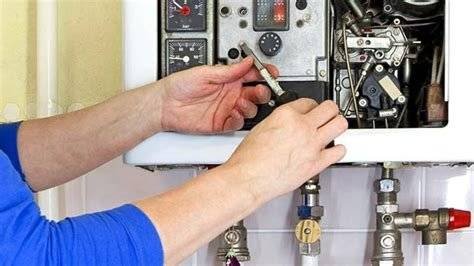
Replace or Repair Furnace: A Encyclopedic Guide
Introduction
Deciding whether to change or fix your heating system is a substantial decision for any house owner. The option affects your immediate convenience and safety and has long-lasting monetary implications. This detailed guide will check out different elements to think about, assisting you make an informed decision.
Understanding Your Furnace
Life-span and Types
Heating systems generally have a lifespan of 15-20 years. The two primary types are gas and electrical, each with various upkeep and operational expenses.
Indications of Difficulties
Common signs that your heating system might need attention include uncommon sounds, inconsistent heating, and increased energy bills.
When to Think About Repairing Your Furnace
Repair is frequently the very best option for minor problems or furnaces that are reasonably new and still under warranty.
Cost-Effectiveness
Repairing can be more cost-efficient for minor problems. Nevertheless, frequent repairs may indicate a much deeper issue.
Ecological Impact
Repairs frequently have a lower environmental effect than replacing the entire system.
When Replacement is the Very Best Option
You should think about replacement if your heating system is near completion of its life expectancy, repairs are becoming significantly expensive, or if it could be more energy effective.
Long-term Expense Savings
While the preliminary expense is greater, a brand-new heating system can be more energy-efficient, saving you cash on energy bills.
Technological Developments
More recent designs feature advanced technology, such as smart thermostats, which offer much better temperature level control and efficiency.
Weighing Your Options
Expense Analysis
Compare the expense of repairs gradually versus the one-time expenditure of a brand-new heating system.
Energy Effectiveness
Evaluate how your existing heating system’s efficiency is affecting your energy bills.
Home Value
Think about how a brand-new heating system may increase the value of your home, particularly if you prepare to sell in the future.
Professional Advice
Looking For Specialist Viewpoint
Talk to heating and cooling professionals to assess the state of your existing heating system and get price quotes for repair and replacement.
Significance of Routine Upkeep
Routine upkeep can extend the life of your heating system, whether you choose to fix or change it.
Conclusion
In conclusion, choosing to fix or change your heating system depends upon different factors, consisting of age, condition, expense, and energy efficiency. By considering these factors and seeking expert suggestions, you can decide that guarantees convenience, safety, and monetary prudence for your home.
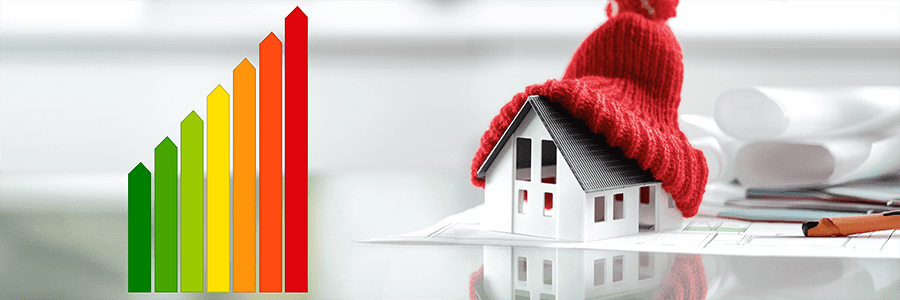
What Time of Year is the Most Affordable to Change The Furnace?
Will a New Energy-Efficient Furnace Reduce Your House Insurance?
Introduction
Home upkeep can be a substantial investment, particularly when it involves important systems like heating. One of the most significant expenses property owners face is replacing their heating system. Nevertheless, timing this replacement can result in considerable savings. This article explores the very best season to change your heating system, considering cost-effectiveness and practicality.
Understanding Furnace Replacements
The Need for Replacement
Before delving into timing, it’s vital to comprehend why and when you should change your heating system. Common indications include frequent repairs, heating inefficiency, and the system’s age (typically beyond 15-20 years). Changing an outdated or malfunctioning heating system enhances heating efficiency and guarantees safety and convenience during chillier months.
Elements Influencing Furnace Prices
Several factors impact heating system prices, consisting of the type of heating system, brand name, capability, and the intricacy of installation. Seasonal need is another considerable aspect, frequently overlooked, yet it plays an important function in determining the expense.
Finest Time for Replacement: Off-Season
Why Select Off-Season?
The off-season, primarily spring and early fall, is generally the most inexpensive to change a furnace. The need for heating systems is lower during these periods than during the peak winter months. Lower need frequently causes more competitive prices from makers and installers.
Advantages of Off-Season Replacement
- Lower Expenses: Lowered need can result in discounts and more customer negotiating power.
- Accessibility of Technicians: a/c technicians are less hectic during these times, guaranteeing more versatile scheduling and quicker installation.
- Sufficient Time for Research study: The off-season gives property owners adequate time to research study various heating system designs and alternatives without the pressure of immediate need.
Preparation Ahead
Using the off-season requires preparation. Expect the need for replacement and schedule it when the need is low. This insight saves cash and avoids the trouble of a furnace breaking down in the middle of winter season.
Winter season: The Peak Season
Difficulties of Winter Season Replacement
- Greater Prices: The need for heating system installation and repair peaks during winter season, causing greater prices.
- Busy Schedules: Finding a professional might be more tough, and you may have to wait longer for an appointment.
- Emergency situation Replacements: If your heating system breaks down in winter season, you may have to opt for an instant replacement, which leaves little room for expense comparison or negotiation.
Other Factors to consider
Energy Effectiveness and Rebates
Purchasing energy-efficient designs might be more expensive upfront but can result in long-lasting savings. Likewise, keep an eye out for refunds and tax credits used for energy-efficient home improvements.
Significance of Routine Upkeep
Routine upkeep can extend the life of your heating system, delaying the need for replacement. It’s a vital aspect of home care that you should take note of.
Conclusion
Timing your heating system replacement can result in considerable savings. The off-season, particularly spring and early fall, is generally the most cost-efficient period for this investment. Preparation, considering energy efficiency, and maintaining your existing heating system can optimize costs and guarantee a warm, comfy home.
Introduction
Property owners frequently contemplate whether updating their home devices and systems can result in savings on their home insurance premiums. One typical concern is whether setting up a brand-new heating system reduces home insurance expenses. This article explores how a brand-new heating system installation may impact your home insurance, providing insights into insurance plan, threat management, and prospective savings.
Understanding House Insurance Premiums
Before diving into the specifics of furnaces and insurance, it’s important to comprehend what factors influence home insurance premiums. Insurance provider assess different factors, consisting of:
- Home Age and Condition: Insurance coverage Agents view newer homes with upgraded systems as lower dangers.
- Area: Geographical area and local climate can substantially impact insurance rates.
- Security Features: The existence of alarms, smoke detectors, and other safety devices can lower premiums.
The Impact of a New Furnace on House Insurance
Installing a brand-new heating system in your house can have several implications for your home insurance:
- Lowered Risk of Fire and Gas Leakages: Modern furnaces with advanced safety functions decrease dangers like fire or gas leaks. This threat decrease can be beneficial in the eyes of insurance companies.
- Improved Energy Effectiveness: Newer furnaces are frequently more energy-efficient, causing lower utility expenses and a decreased environmental footprint, indirectly affecting insurance considerations.
- Enhanced Home Value: Updating to a brand-new heating system can increase your home’s market value, which may impact the protection you need.
Possible Insurance Discounts
Some insurance provider offer discounts for home improvements that reduce threat. These may include:
- Protective Device Discounts: You may receive a discount if your new heating system contains advanced safety functions.
- Green House Discounts: Some insurance companies supply unique discounts for setting up energy-efficient home appliances.
Documents and Appraisal
To utilize a brand-new heating system installation for insurance benefits, think about the following:
- Professional Installation: Guarantee a certified expert installs your heating system, which can be a requirement for insurance benefits.
- Keep Records: Keep all receipts and documents for the heating system purchase and installation.
- Notify Your Insurer: Alert your insurance company about the upgrade. They might need an examination or additional documents.
Factors to consider Before Updating
While a brand-new heating system can offer benefits, think about the following:
- Expense vs. Benefit Analysis: Examine if the long-lasting savings on insurance and energy bills validate the preliminary expense of a brand-new heating system.
- Insurance Plan Review: Speak with your insurance agent to comprehend how a brand-new heating system may particularly impact your policy.
Conclusion
Updating to a brand-new heating system can lower your home insurance premiums by reducing threat and boosting your home’s safety and efficiency. Nevertheless, the effect varies based upon specific insurance plan and the particular functions of the heating system. It’s recommended to seek advice from your insurance provider to comprehend the complete benefits and implications of a brand-new heating system installation.
Frequently asked questions
Q: Just how much can I minimize my home insurance by setting up a brand-new heating system?
A: Cost savings differ based upon the insurance provider and the particular functions of the new heating system. Talk to your insurance agent for detailed info.
Q: Are there any particular types of furnaces that are more beneficial for insurance discounts?
A: Heating systems with advanced safety functions, high energy efficiency rankings, and those that satisfy particular environmental standards are frequently more beneficial.
How to Prepare for a Heating System Installation
Installing a brand-new heating system in your house is a substantial investment and a vital upgrade to your living space. It boosts the convenience of your home and enhances energy efficiency. Proper installation preparation is important to guarantee the installation procedure is smooth and trouble-free. This article will guide you through the necessary actions to get ready for a furnace installation.
Understanding Your Heating Needs
Evaluating Your Area: The primary step is to assess the size of your space and comprehend the heating requirements. A too-large or too-small heating system for your home can result in inefficiency and greater energy expenses. Consulting with a heating expert to determine the ideal heating system size is important.
Selecting the Right Furnace: There are different furnaces, consisting of gas, electrical, and oil. Each has pros and cons; the option depends upon your area, budget plan, and personal choice. Research study and seek advice from professionals to make an informed decision.
Pre-Installation Preparation
Selecting a Qualified Installer: We can not overemphasize the significance of choosing a qualified and experienced installer. Look for professionals with excellent evaluations and appropriate accreditation. They will guarantee a correct installation and guide you through the procedure.
Cleaning the Area: Guarantee the area where you prepare to install the heating system is clear of any mess. A clean area supplies simple access to the installation group and accelerate the procedure. Eliminate any valuable or fragile items from the area to avoid accidental damage.
Preparing for Downtime: Depending upon the intricacy of the installation, your heater might be down for a few hours to a day. Strategy appropriately, particularly if the installation is during chillier months.
During Installation
Access to Your Home: Guarantee the installers have simple access to your home, that includes guaranteeing that parking is offered and a clear path to the heating system area.
Communication: Stay offered to respond to any questions the installers may have. Clear interaction can help deal with any problems quickly and ensure your installation goes as planned.
Post-Installation Checks
Examine the Installation: Once the installation is complete, inspect the work with the installer. Guarantee that the installation is complete and that the area is tidy.
Understanding the System: Have the installer explain the performance of the new heating system, consisting of how to change filters and the standard troubleshooting actions.
Guarantee and Documents: Guarantee you get all necessary documents, consisting of warranty info and running handbooks. Keep these documents in a safe place for future recommendation.
Conclusion
Preparing for a furnace installation involves understanding your heating requires, picking the ideal heating system, and choosing a qualified installer. By following these actions, you can guarantee a problem-free installation procedure and take pleasure in the convenience and efficiency of your new heater for several years to come. Remember, a little preparation goes a long way in guaranteeing a smooth and effective heating system installation.
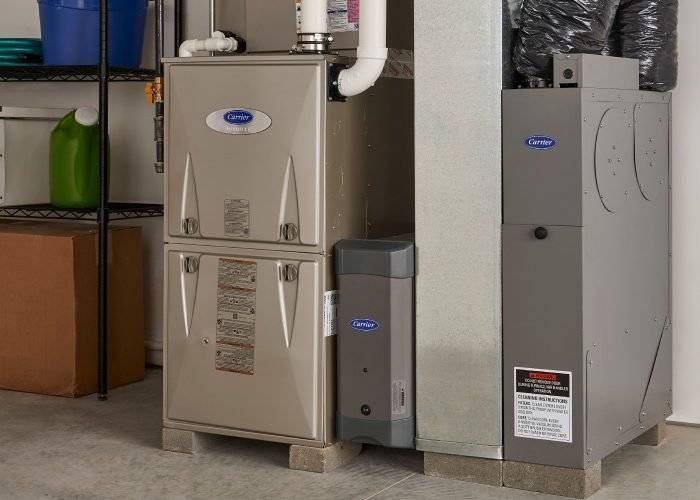
Our Work
